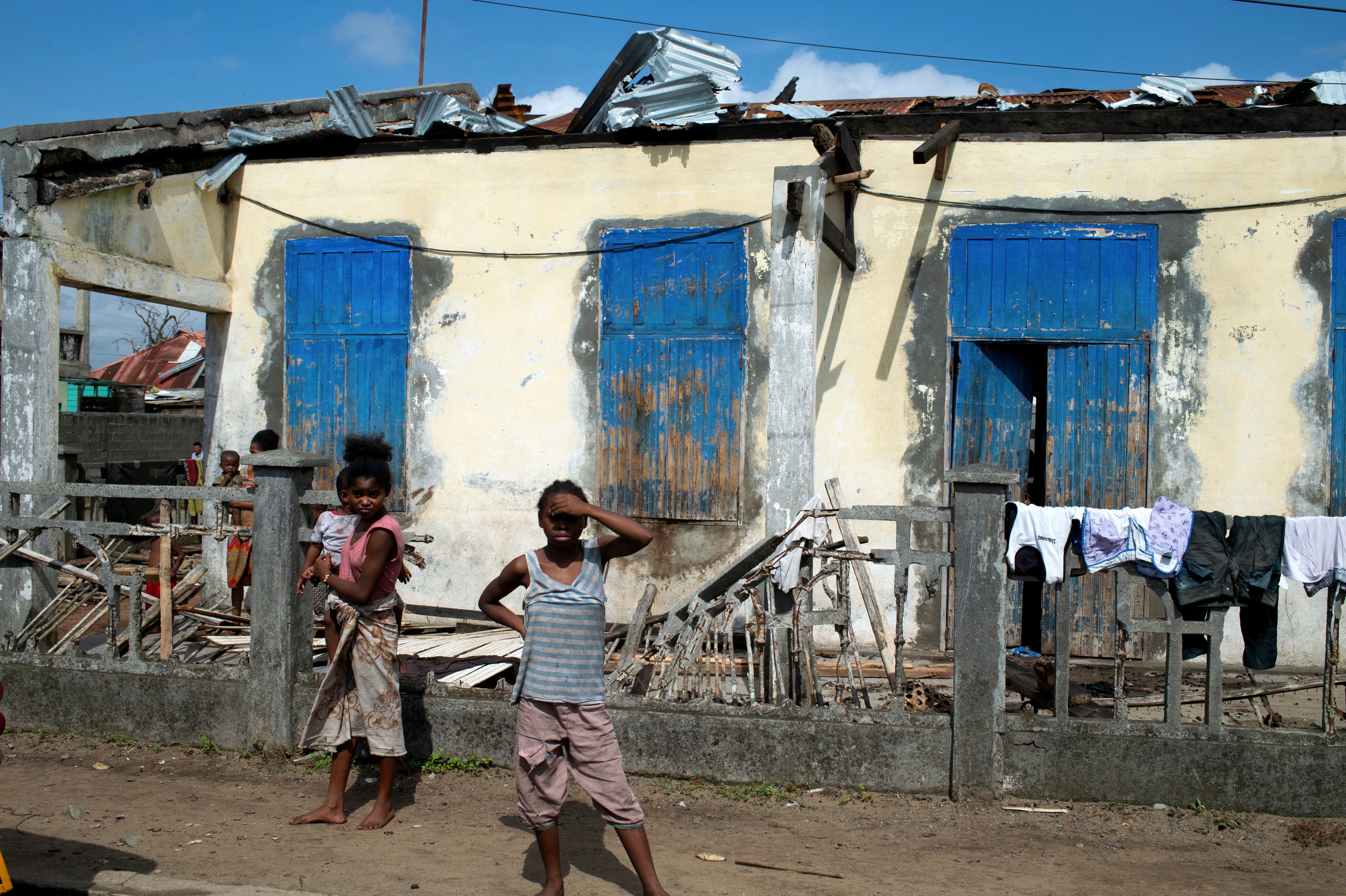Madagascar, southern Africa brace for more tropical storms
Even as southern African nations assess the devastation caused earlier this month by Cyclone Batsirai, a new tropical storm is approaching as the Indian Ocean region is confronted by an intense cyclone season

Your support helps us to tell the story
From reproductive rights to climate change to Big Tech, The Independent is on the ground when the story is developing. Whether it's investigating the financials of Elon Musk's pro-Trump PAC or producing our latest documentary, 'The A Word', which shines a light on the American women fighting for reproductive rights, we know how important it is to parse out the facts from the messaging.
At such a critical moment in US history, we need reporters on the ground. Your donation allows us to keep sending journalists to speak to both sides of the story.
The Independent is trusted by Americans across the entire political spectrum. And unlike many other quality news outlets, we choose not to lock Americans out of our reporting and analysis with paywalls. We believe quality journalism should be available to everyone, paid for by those who can afford it.
Your support makes all the difference.Even as southern African nations assess the devastation caused earlier this month by Cyclone Batsirai, a new tropical storm is approaching as the Indian Ocean region is confronted by an intense cyclone season.
Tropical Storm Dumako is projected to slam into the northeastern coast of Madagascar Tuesday evening, according to the U.N.'s regional meteorology center in Reunion. Dumako, the fourth storm this year, is forecast to make landfall near Madagascar's Antalaha town.
About eight to 12 more cyclones may hit southern Africa and nearby islands in the Indian Ocean before the cyclone season ends in May, part of an increase in recent years of extreme tropical storms in the Southern Hemisphere, according to the U.N. Meteorological Organization.
Southern Africa was warned to prepare for “more high-impact tropical cyclones, coastal flooding and intense rainfall linked to climate change” by the meteorological organization after Cyclone Idai caused massive destruction and hundreds of deaths in Mozambique and neighboring countries in 2019.
Madagascar is still counting the toll of Batsirai, which left 94 people dead earlier in February and destroyed many buildings and roads. Just weeks before, in January, Tropical Storm Ana claimed 58 lives and displaced 130,000 people on Madagascar and caused further destruction in Mozambique and Malawi.
“In the last few years we have noted more warming of the oceans. This change in climatic patterns in the Indian Ocean normally leads to an increase of cyclones in the southwestern part,” Evans Mukolwe, an African meteorological expert who is a consultant for the U.N.'s intergovernmental authority on climate prediction.
“Climate change is having severe impacts on Africa,” he said.
Mukolwe echoes the alerts given late last year by the U.N.'s Intergovernmental Panel on Climate Change which warned of dire weather-related hazards for Africa’s islands and coastal nations. Madagascar was projected to face frequent arid spells and droughts while at the same time be hammered by strong tropical cyclones. This paradoxical pattern of droughts and cyclones is exactly what the Indian Ocean island has suffered so far this year.
Tropical storms have battered eastern Madagascar and the central capital, Antananarivo, even as the southeastern part of the island experienced its worst drought in 40 years, according to the World Food Program. The agency appealed for urgent food aid for more than 1.1 million people in the Fianarantsoa area.
Africa's islands and coastal cities are at risk of more extreme weather in the coming years, according to the U.N.'s intergovernmental panel on climate change. Slightly more than 50 major African cities are exposed to severe climate-related threats posed by sea level and air temperatures rise, the panel warned in a report.
“Sea level rise coupled with storm surges and waves will exacerbate coastal inundation and the potential for increased saltwater intrusion into aquifers,” said the report.
The surface of the Indian Ocean has warmed faster than the global average which is forecast to give rise to more cyclones and more droughts.
Africa's coastal areas are likely to see continued rises in the sea level in this century leading to severe coastal flooding, marine heatwaves, ocean acidification and reduced oxygen levels, according to the report.
To counter the dangerous changes posed by extreme events, the U.N. Economic Commission for Africa has called for climate-smart planning in all economic sectors.
“Sustained investments in disaster risk reduction, energy, water systems, infrastructure, and resilient nature-based ecosystems are needed to cushion Africa’s socio-economic growth, fast-track poverty alleviation, and attain a smart and climate-neutral industrialization agenda,” said Jean-Paul Adam, director of climate change at the U.N. agency.